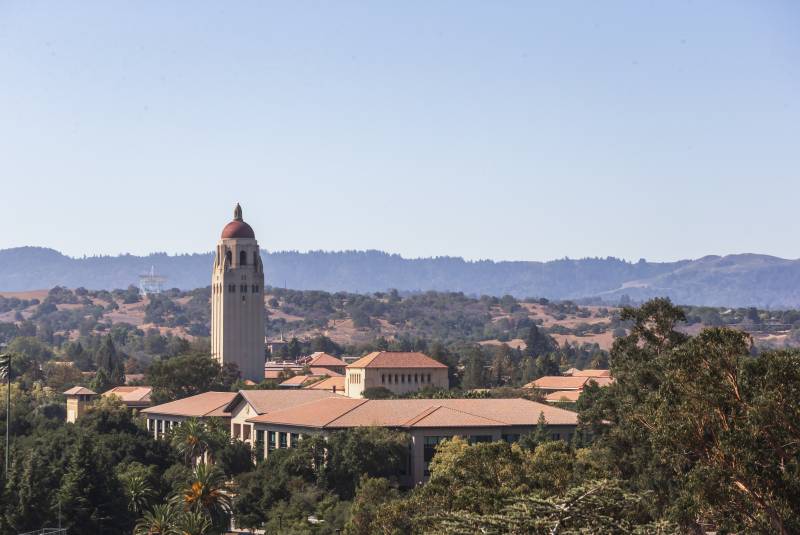Since its inception in the summer of 2022, the sustainability school — launched with a $1.1 billion gift from John and Ann Doerr, the largest gift in university history — hasn’t been able to shake this kind of criticism.
The school’s then-incoming inaugural dean, Arun Majumdar, told the New York Times that the school would accept funding and work with fossil fuel companies. Later in the year, he clarified that the dollars would not be used for general operations.
“If there are companies that are making measurably meaningful efforts to be part of the solution, I feel it would be prudent to be open to engaging such companies while remaining vigilant that their values align with ours,” Majumdar said in a statement from 2022.
The goal of the new college is to aid in coming up with climate solutions.
Over the past year, Stanford researchers have released studies on everything from water vulnerability to solar power to wildfire prevention.
However, some students and staff think accepting money from fossil fuel companies is a slippery slope that could shape research agendas. And argue that burning fossil fuels directly creates human-caused climate change.
On their website, the Coalition for a True School of Sustainability lists Stanford programs with past or current ‘Big Oil Entanglements.’ The group represents a coalition of Stanford scientists who believe fossil fuel money invested for research undercuts swift climate action.
“The fossil fuel industry for decades has misled the public on the reality of climate change,” said Mallory Harris, a graduate student in biology at the university and a member of the coalition. “When they’re talking about bringing them into this research space, it undermines the quality and integrity of the research that we’re doing.”
The advocates have pressed Stanford to be more transparent in disclosing the origins of their funding and to ensure that every corporate donor has a credible energy transition pathway. They also want to know if these companies are lobbying for or against climate legislation.
The group would like a third-party enforcement board to analyze funding from fossil fuel companies, especially for those who plan to continue expanding extraction.
“If by those criteria they find those companies are not trustworthy partners, then the university should dissociate from partnering with them,” said Thom Hersbach, a researcher at Stanford and member of the coalition.
The university created a working group in late 2022 to assess Stanford’s approach to funding research with money from fossil fuel companies. The committee’s job is to evaluate current funding, review the process of other universities and provide pros and cons of continuing accepting funds or different paths.
“We recognize this is an impassioned topic for members in our community, and the university is approaching this matter with the seriousness and rigor it deserves,” Amy Adams, associate dean of marketing and communications, told KQED in a statement.
“We look forward to the results from the thoughtful process being carried out by the committee,” she said.
Students and staff said they plan to continue to make a fuss over the issue because they want the college to succeed at reducing carbon emissions.
“I’m doing this because this school can do so much good, and I want to ensure it does,” Hersbach said.
